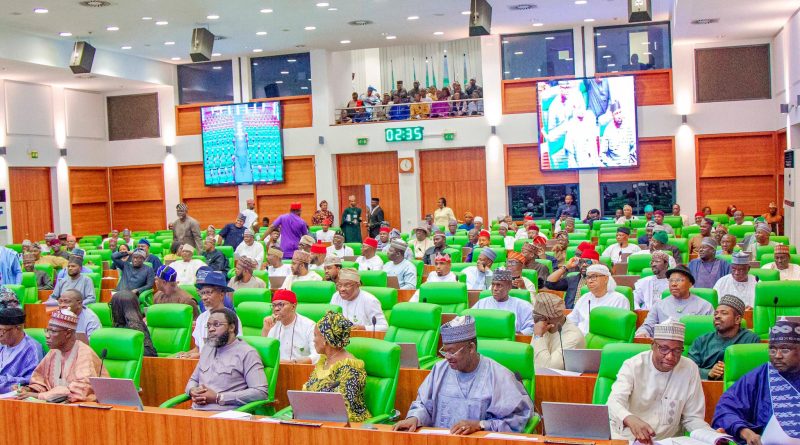Bill to amend Money Laundering Act passes second reading at House of Reps
The House of Representatives has passed for second reading a bill seeking to amend the Money Laundering (Prevention and Prohibition) Act, 2022, in a bid to tighten Nigeria’s anti-corruption laws.
The proposed legislation, sponsored by Yusuf Gagdi (APC, Plateau), passed second reading after scaling the first on 23 July.
It aims to strengthen the country’s anti-money laundering regime, enhance asset recovery, and introduce civil forfeiture provisions to complement existing criminal prosecution mechanisms.
The Money Laundering (Prevention and Prohibition) Act, 202,2 was enacted as part of Nigeria’s efforts to strengthen compliance with international anti-money laundering (AML) and counter-terrorism financing standards, particularly recommendations by the Financial Action Task Force (FATF) and the Inter-Governmental Action Group against Money Laundering in West Africa (GIABA).
The 2022 Act replaced the earlier Money Laundering (Prohibition) Act, 2011 and expanded the scope of offences to cover non-financial institutions such as real estate agents, lawyers, and dealers in precious metals.
It also introduced tougher penalties for violations, mandatory reporting obligations, and restrictions on cash transactions.
However, the current law’s heavy reliance on criminal prosecution before assets can be forfeited often limits its effectiveness because investigations and prosecutions can take years, during which time assets are dissipated or concealed.
Leading the debate on the bill’s general principles during Wednesday’s plenary, Mr Gagdi described the fight against corruption and illicit financial flows as “one of the most defining governance challenges of our time.”
He lamented that despite the robust framework created under the 2022 Act, “a significant volume of unlawful financial activities still infiltrates Nigeria’s financial and property systems through complex methods of consignment and layering.”
According to him, while the current Act provides for criminal prosecution and forfeiture of assets derived from illicit sources, it places an onerous evidential burden on law enforcement agencies, which often frustrates timely recovery of stolen assets.
Mr Gagdi explained that many individuals who cannot justify their sources of wealth continue to live lavishly beyond their legitimate means, exploiting evidential loopholes, procedural delays, and technicalities that hinder effective prosecution.
He said the amendment bill seeks to fill that gap by introducing a civil forfeiture model, which would allow the state to recover unexplained wealth through judicial proceedings even without a criminal conviction.
“This civil forfeiture model has proven effective in jurisdictions such as the United Kingdom, Kenya, and South Africa in curbing corruption, deterring financial crimes, and enhancing asset recovery,” he said.
“If enacted, this legislation will ensure that every Nigerian lives within the means of their legitimate income while preventing political and bureaucratic shields from protecting proceeds of corruption. By passing this bill, we signal Nigeria’s commitment to global best practices in combating money laundering and illicit financial flows,” he added.
The lawmaker further explained that the bill introduces a new part to the existing law, establishing a clear legal framework for civil recovery orders against unexplained wealth. It also empowers anti-corruption agencies, including the Economic and Financial Crimes Commission (EFCC), to apply to a High Court for restraining orders where a person’s assets appear inconsistent with their lawful income.
READ ALSO: In Senate chamber, Akpabio honours ex-governor who was jailed for money laundering
It provides for a transparent judicial process requiring affected persons to explain the legitimate sources of their assets, while strengthening coordination among relevant institutions responsible for tracing, freezing, and confiscating illicit funds.
Mr Gagdi said the proposal is not punitive but preventive and corrective, designed to promote transparency, integrity, and accountability in public and private life.
“This bill is not a withdrawn tool; rather, it is a preventive and corrective measure designed to promote transparency, integrity, and accountability in public and private life,” he said.
“It seeks to ensure that every Nigerian lives within the means of their legitimate income and that the proceeds of corruption, fraud, and criminal enterprises are not shielded behind political barriers.”
The House adopted the bill without debate, after which the Speaker, Abbas Tajudeen, who presided over the plenary, referred it to the House Committee on Financial Crimes for further legislative action.

